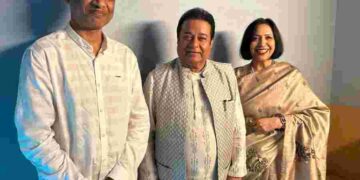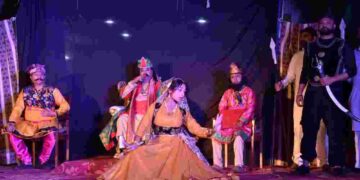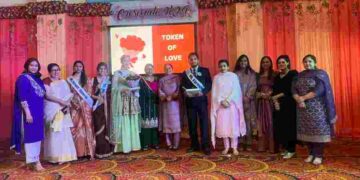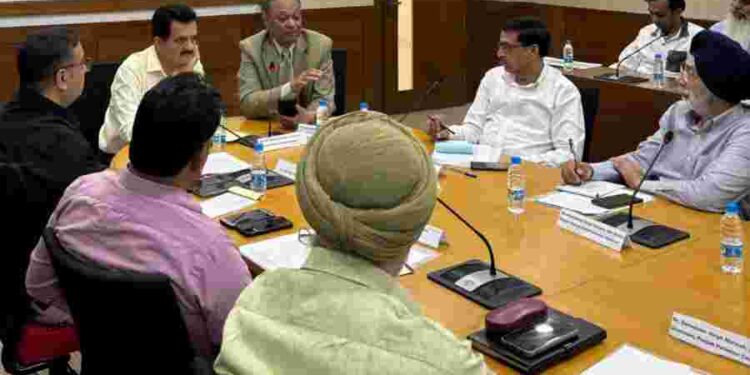Chandigarh, April 22:
The Punjab State Food Commission has successfully hosted a high-level multi-departmental meeting focused on advancing nutritional security, medicinal gardening and health education initiatives across schools and Anganwadi centers throughout the state.
Chaired by Sh. Bal Mukund Sharma, the session brought together key government officials and subject matter experts at MGSIPA, Chandigarh to develop cohesive strategies for implementing and scaling nutrition programs that combine educational components with practical gardening initiatives.
“Our aim is to create sustainable models that not only address immediate nutritional needs but also build lasting awareness about healthy food choices among our youngest citizens,” said Chairman Mr. Sharma, while highlighting the Commission’s ongoing commitment to food security.
Dr. B.C. Gupta, IAS (Retd.), former Secretary of the Department of Food and Public Distribution delivered keynote remarks on the transformative potential of the National Food Security Act, while technical presentations covered available resources in schools, the current status of Poshan Vatika initiatives and agricultural models tailored to Punjab’s climate conditions.
The meeting stressed practical implementation paths, with Member Secretary Sh. Kamal Kumar Garg, IAS outlining plans to establish pilot programs in selected schools that could serve as models for wider adoption.
Participants also explored potential partnerships between government departments, academic institutions and private sector entities to maximize program effectiveness.
The meeting featured distinguished participation from key stakeholders across multiple disciplines. Sh. Kamaldeep Singh Sangha, IAS (Retd.), underlined the critical intersection of nutrition, hygiene and health education, while Dr. Satwinder Singh Marwaha, Former Chairman of Punjab Pollution Control Board addressed essential aspects of food quality and safety protocols. Contributions continued with practical insights from Sh. Varinder Brar on resource availability in schools and Sh. Sukhdeep Singh Jhaz’s comprehensive presentation on Poshan Vatika initiatives. Complementing these perspectives, Sh. Sukhdeep Singh Hundal shared expert guidance on climate-appropriate gardening models, while Dr. Ajit Dua elaborated on food testing standards and implementation frameworks.
Further enriching the discussion were specialized interventions from diverse experts addressing complementary dimensions of nutritional security. Dr. Jaswinder Brar from PAU Ludhiana outlined strategies for enhancing dietary diversity through strategic fruit cultivation, while Dr. Amrit Singh Sekhon presented opportunities for NRI involvement in grassroots health projects. The dialogue was further strengthened by Dr. S.K. Batish’s advocacy for Ayurvedic integration in nutrition programs and Mr. Taranjeet Singh Bhamra’s insights on leveraging agri-tech solutions for program monitoring and evaluation. Commission Members Mr. Chetan Parkash Dhaliwal and Mr. Vijay Dutt rounded out the proceedings with firsthand field observations and closing acknowledgments, respectively.
The summit concluded with a commitment to develop concrete action plans within 30 days, focusing on leveraging existing infrastructure while introducing innovative approaches to food quality testing, program monitoring and community engagement.








